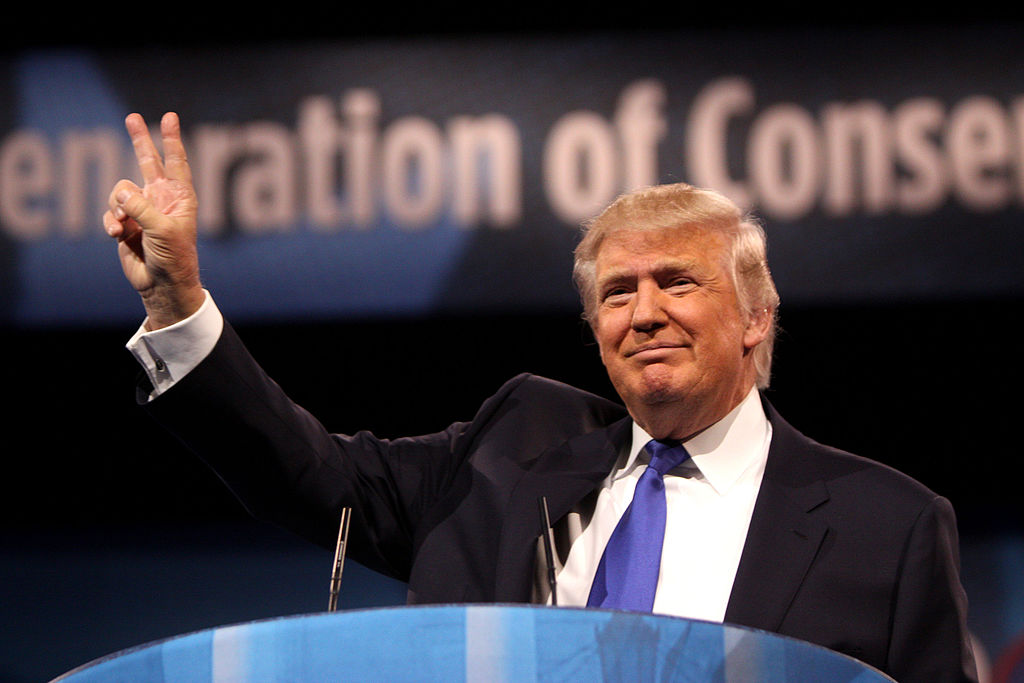Latest Polls Reveal Small Business Owners are Optimistic About a Donald Trump Presidency
It is well-known that business hates uncertainty, and there are few things that have created more uncertainty than the prospect of a Donald Trump presidency.
On January 20, we will see President-elect Donald Trump officially take office. Although there have been some questions about his presidential plans, one thing is certain, small business owners are excited for him to get to work. The National Federation of Independent Business’ read on small-business sentiment for December hit its highest level since 2004. The NFIB’s index increased by 7.4 points in December to 105.8, up from November’s 98.4. It’s the largest month-over-month index change since it began in 1986.
Separate data from Staples last week underscored the positive post-election feeling among small employers, with 85 percent saying they are optimistic about the climate in the new year, 67 percent planning to hire and 72 percent planning on increasing staff wages in 2017. But what is causing this outpouring of optimism in the small business sector?
Tax Reform
Small businesses believe there are good reasons to be hopeful over a Trump presidency. For starters, they expect tax reform to be a priority, as Trump plans to cut taxes for all Americans. He also plans to slash corporate income taxes down to 15 percent. He’s going to tax LLCs and other “pass through” legal entities at 15 percent instead of charging them the personal income tax rate, which could be as high as 39.6 percent under the current tax code.
The Trump Plan will lower the business tax rate from 35 percent to 15 percent, and eliminate the corporate alternative minimum tax. This rate is available to all businesses, both small and large, that want to retain the profits within the business. It will also eliminate most corporate tax expenditures except for the Research and Development credit.
Firms engaged in manufacturing in the US may elect to expense capital investment and lose the deductibility of corporate interest expense. An election once made can only be revoked within the first 3 years of election; if revoked, returns for prior years would need to be amended to show revised status. After 3 years, election is irrevocable.
Trump’s plan to cut corporate taxes offers the most benefit to firms that earn more revenues domestically — a category most small businesses fall into.
The Era of Deregulation
Small business owners are gearing up for what is perceived to be an era of deregulation and more business-friendly policies under a Trump administration. With Republicans holding control of the House and Senate, small businesses are zeroed in on regulatory reform.
Trump has called Dodd-Frank “a very negative force” in the economy. And his Treasury secretary designee, Steven Mnuchin, believes that Dodd-Frank is too complicated and an obstacle to lending, and has pledged to strip back parts of the law and make that priority number one on regulatory reform.
One target will be the Volcker Rule, legislation drawn from five agencies that prohibits banks from trading for their own profit and limits their ownership of risky investments. Big banks would like to see the law weakened or killed, but that would require legislation.
Repealing Obamacare
Two-thirds of small business owners report that they want to see Obamacare repealed and replaced. They complain about the cost of health care coverage, though companies with 50 or fewer employees are exempt under the law.
Under Obamacare some companies and employees are paying twice what they paid for health insurance and getting less for it before the Affordable Care Act was signed into law. Unlike larger businesses, smaller ones cannot absorb the costs of increased premiums. As a result, they have been forced to dump their employees into the exchanges. It’s cheaper for small businesses to simply pay Obamacare’s fines than cover their employees under exorbitantly expensive insurance plans.
Small business owners also say it’s complicated to figure out how to buy health care on the exchanges. Small business owners have complained that they have a hard time trying to figure out the best plans and options for themselves and their employees.
Overall, small businesses are hopeful that the Trump administration can find a way to lower health insurance premiums while maintaining or increasing coverage benefits.
There’s Still More Work to Be Done
According to a survey by Manta, in which 1,575 small business owners between Dec. 29 and Jan. 3, almost seven in ten small-business owners say that Trump will positively impact their business. The biggest issues for small companies in this month’s index were taxes, followed by government regulations and red tape, so the belief that these issues may be lessened is sending a hopeful message.
However, despite the surge in optimism, hiring is flat. For December, the NFIB reported job creation as an increase of only 0.01 workers per firm, while job openings fell two points. In addition, sales improved by just one percentage point, despite consumer confidence soaring in December to its highest levels since 2001.
If job creation and sales numbers climb, small-business optimism could continue to hold strong if the Trump administration makes progress on the key areas, including tax and regulatory reform, will also have a positive impact.
But there are still two big questions to be answered: When will these reforms happen? And when will these policies get implemented? And although Trump’s administration has promised a tall order – small businesses continue to be optimistic.


